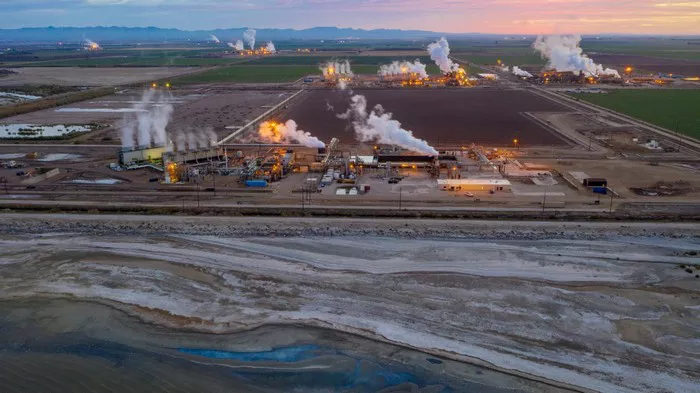Over the next two years, homebuilder Lennar will equip over 1,500 new homes in Colorado with Dandelion Energy’s geothermal systems, marking one of the largest residential geothermal projects in the United States.
Lower Energy Bills and Cleaner Heating and Cooling
The primary appeal for homeowners is the promise of reduced energy bills and cleaner heating and cooling options. Dandelion Energy estimates that Lennar homeowners with geothermal systems will collectively save around $30 million over the next 20 years compared to homes using air-source heat pumps. Unlike traditional heating and cooling systems, geothermal heat pumps don’t require outdoor AC units or conventional heating units.
How Geothermal Systems Work
Geothermal systems leverage the Earth’s consistent underground temperature to heat or cool a home. A ground loop system absorbs heat energy (measured in BTUs) from the earth, which is then transferred to a heat pump for efficient conversion into warmth for the home. Dandelion claims that its ground loop systems are designed to last over 50 years with no maintenance required.
Dandelion uses a vertical ground closed-loop system, which is installed by boring wells and then connecting pipes that circulate a mixture of water and propylene glycol, a food-grade antifreeze. The heat absorbed by the liquid is exchanged in the heat pump, where it is converted to vapor, compressed to increase its temperature, and passed through a heat exchanger. The heat is then transferred to the air, which is circulated throughout the home’s HVAC system.
Partnership Sets New Standard for Affordable, Energy-Efficient Systems
Daniel Yates, CEO of Dandelion Energy, praised the partnership with Lennar as setting a “new benchmark for affordable, energy-efficient, and high-quality home heating and cooling.” Dandelion’s streamlined installation process is making geothermal systems more accessible and cost-effective for homebuilders and homeowners.
Colorado’s Clean Energy Push
This collaboration comes as Colorado works to meet its clean energy goals. Governor Jared Polis has expressed excitement about the initiative, highlighting the benefits to both homeowners’ finances and air quality. Will Toor, executive director of the Colorado Energy Office, emphasized that affordable access to geothermal systems is crucial for reaching the state’s target of net-zero emissions by 2050, calling it a major step forward in bringing geothermal technology to new homes.
Reducing Peak Demand and Energy Infrastructure Needs
Geothermal systems also help reduce peak electric demand. According to the Department of Energy, widespread adoption of these systems could save the U.S. from needing 24,500 miles of new transmission lines – equivalent to crossing the continental U.S. eight times.
Incentives and Rebates Make Geothermal More Accessible
Colorado’s state tax credits and Xcel Energy’s rebate programs are further incentivizing the transition to geothermal energy by cutting upfront costs for builders like Lennar. These financial incentives help make geothermal installations more financially feasible, aligning with the utility’s Clean Heat Plan and electrification strategy to reduce energy bills while achieving climate goals.
Related topics:

